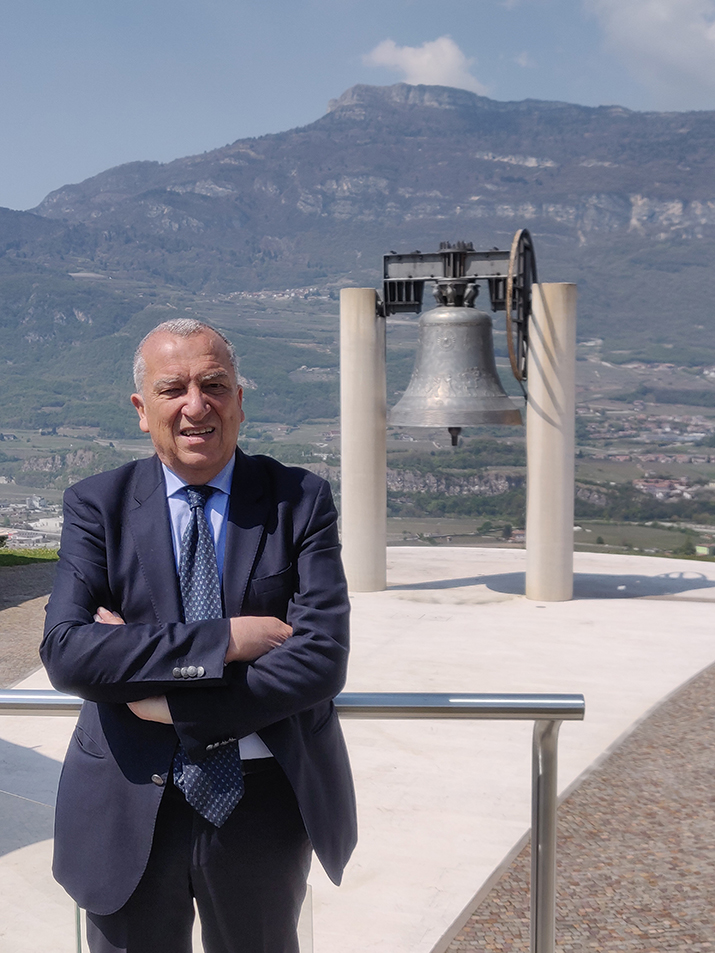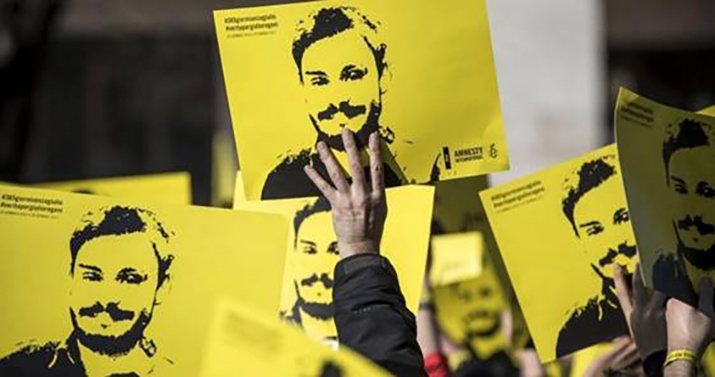More than five years after the discovery of Giulio Regeni’s tortured body near the highway connecting Cairo with Alexandria, the kidnapping and subsequent killing of the young researcher, who went to Egypt to complete his university thesis, still remain unsolved in terms of identifying the culprits.
As a result of the unanimous indignation of Italian public opinion together with the incessant, courageous appeals to justice launched by the parents, Paola and Claudio Regeni, the Italian authorities in charge of the case, both police and judicial, have invested every possible effort in this long period of time in order to obtain evidence from the Egyptian counterparts regarding the precise responsibilities. Any attempt to collaborate has been met with various obstacles, that is to say delays, omissions, refusals and intended activities of misdirection, in particular the attribution of the murder to four offenders, killed in a shooting. Against this background of impenetrable reticence, the initial suspicion of a direct involvement of the local security services in the murder of Giulio has gradually turned into real conviction, in the same way that the motive for the heinous crime, may be connected without any possible doubt to Giulio’s academic activity, considered "subversive" by local authorities.
In the past five years even measures of a political nature, such as the suspension of relations between Parliaments ordered in November 2018 by the President of the Chamber of Deputies and the constitution of a commission of inquiry within the chamber shortly after, have not been able to induce the government of Cairo to the indispensable collaboration.
Similarly, the exhortations for the re-establishment of the truth addressed to the North African authorities by various European bodies (we bring to mind the European Parliament resolution of December 2020 for its relevance) have remained, in practice, without results.
Despite these objective difficulties, our investigating judiciary was able, at the end of 2020, to indict four senior officials of the Egyptian security services, on the basis of the evidence available, on heavy charges of kidnapping, aggravated murder and aggravated personal injury. The first hearing of the trial, which will take place in the absence of the accused who are unavailable, is imminent in Rome.
Having up to now maintained the controversy on a purely bilateral level has made it impossible for Italy to oppose, if not with formal positions, the stubborn attitude of non-collaboration on the Egyptian side. This has recently been reaffirmed by the "Zaki case", the naturalized Italian student who was incarcerated in Cairo for one year in the absence of precise and documented charges.
As highlighted by a seminar recently held in the capital by the Center for International Political Studies (Cespi), an international instrument, the Convention against torture and other cruel, inhuman and degrading treatments, comes to the rescue to overcome situations of impasse such as the above. The Convention was adopted by the United Nations in 1984 and both Italy and Egypt have joined.
In fact, Article 30 of the Convention states that - in the event of failure of direct negotiations (in this case rendered useless by the Egyptian conduct) and in the obsence of an agreement for arbitration - the dispute will be submitted to the International Court of Justice in The Hague.
It is evident how in this way full cooperation of both parties on a judicial level becomes indispensable, if you wish to direct the verdict of the high court in your favor.
It is a path, which for various reasons, is not easy and, consequently, has been pursued very little (so far, only one case has been decided and a second is in progress), however considering the insurmountable difficulties encountered by Italy in the search for truth with regard to the "Regeni case" from 2016 to today, it seems worthy nonetheless of consideration.
"Reggente" Marco Marsilli, Foundation President








